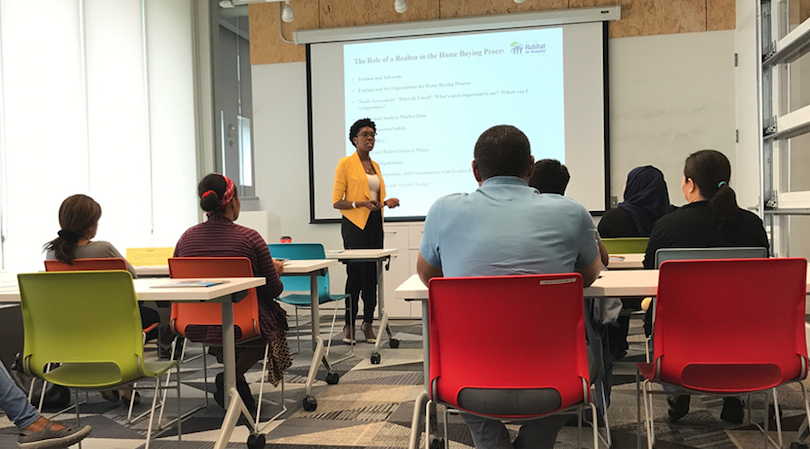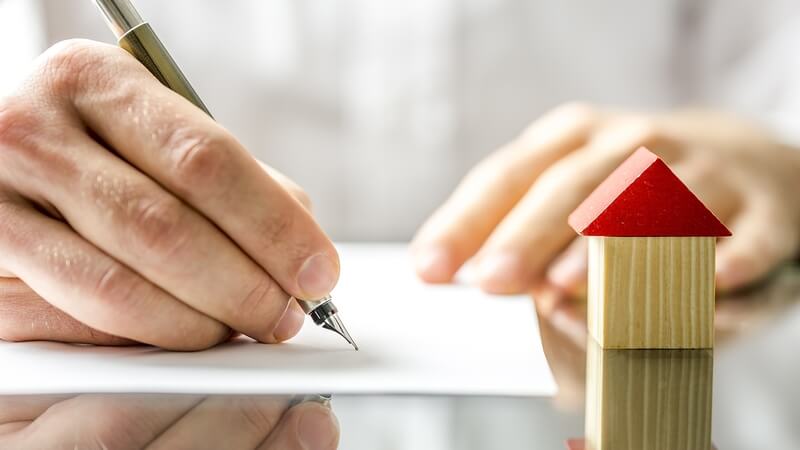What is a Homeownership Advisor and How Can They Help You Buy Your First Home?
The biggest consideration when making any large purchase decision is how you’re going to budget for it. And for most people, buying a home is the...
3 min read
 Twin Cities Habitat for Humanity
:
9:30 AM on June 26, 2020
Twin Cities Habitat for Humanity
:
9:30 AM on June 26, 2020
![Getting Your Financial House in Order to Buy a Home [VIDEO]](https://www.tchabitat.org/hubfs/2020%20Blog%20Images/June/Financial%20House%20-%20Featured.jpg)
We continue to process the pain and hope of our nation’s uprising for racial justice amid a global health crisis. You can see our recent statements on the uprising here, our COVID-19 web page here, and our Race & Housing resource center here. Expanding homeownership is a key component of racial equity and health, so our mission has never been more important—and we’ll continue to share the stories of Habitat’s work.
When you're looking at buying your first home, there's a lot to consider. Not least of those are the financial concerns, which go way beyond the sticker price. Homeowner Development Manager Pa Lor explains a few of them in our latest video answering common questions about homeownership.
"When you're thinking about purchasing a home, I think the biggest thing is to make sure you're researching and preparing financially," says Pa. These are the primary benchmarks you can use to get ready to buy your first home.
In the video, Pa explains the concept of mortgage readiness, which can help you organize your finances before buying your first home. Here are the main elements of mortgage readiness.
Income - Your income will be one of the first things a lender looks at when you apply for a mortgage. "This is going to be your biggest asset," Pa says. "Your income is going to be what's used to qualify you for a loan, and it has to be verifiable, stable, and continuous."
Savings - In addition to your regular income, it's important to build some kind of savings before buying a home. You're probably going to dip into it to pay inspection fees, closing costs, and maybe even a down payment on the home.
Credit - Credit is what determines whether or not you'll be approved for a loan. Acceptable credit scores will vary by loan and provider, but Pa says that "most financial institutions will require a 640 or higher."
Debt Ratio - Your debt ratio is a measurement of how much you make versus how much of it is being spent to pay down debt. In the video, Pa says, "In the mortgage industry, all of your debts [combined]," including the mortgage you're applying for, "should not be more than 43 percent of your income."
For example, Twin Cities Habitat bases your monthly mortgage payment on about 30 percent of your income, meaning that your remaining debt payments can't exceed 13 percent of your income if you want to be accepted for a loan (for a total of 43 percent). "If you have a lot of current outstanding debt with loans, student loans, credit cards, what have you, just make sure that you're getting some of those things paid off before you start that process," Pa says.
Credit History - Bankruptcy, judgments, and collections can reflect negatively on your credit history and impact your ability to get a home loan. "If you've had a recent bankruptcy, it may take some time for you to work at rebuilding credit before you can qualify to borrow money to purchase a home," Pa explains. "A lot of lenders will require that you pay those judgments and collections off before you can purchase a home."
Along with your mortgage readiness, consider thoroughly the costs you'll incur when buying a home. Pa says you should "make sure that the income is there" before you settle on the home of your dreams. "What can you afford? What's a home price that you're comfortable with? What's a monthly payment that you're comfortable with?"
Money isn't the only factor to consider when buying a home. "Buying a home is very much emotional and psychological as well as financial," Pa says. "As a homeowner, you're going to have to make home repairs. You're going to have to be prepared to fix things, or pay someone to take care of those things. Are you mentally prepared to do those things? Are you ready and willing to learn? Are you willing to shovel [your driveway] and to mow your lawn? All of those things are something that you need to ask yourself."
If you have questions about your mortgage readiness or how to increase your chances of being approved, there are places to go to get help. "There's a lot of resources out there to help you purchase your first home," Pa says.
With local financial coaching and homeownership experts, Twin Cities Habitat is one of them. We'll help assess your mortgage readiness and find ways to get your finances ready when you make the decision to buy your first home.
If you found this video helpful, check out more tips for first-time homebuyers on the Twin Cities Habitat for Humanity YouTube channel!
Your gift unlocks bright futures! Donate now to create, preserve, and promote affordable homeownership in the Twin Cities.

The biggest consideration when making any large purchase decision is how you’re going to budget for it. And for most people, buying a home is the...

We continue to process the pain and hope of our nation’s uprising for racial justice amid a global health crisis. You can see ourrecent statements...

We continue to process the pain and hope of our nation’s uprising for racial justice amid a global health crisis. You can see ourrecent statements...